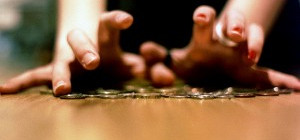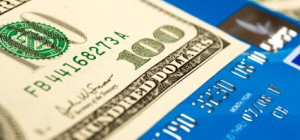 It’s possible to not have a credit score if you’ve avoided traditional monetary habits, like opening a credit card or paying utility bills during your adult life. While having no credit score won’t help you, it won’t hurt you as much as having a bad credit score. Neither situation is ideal, but you should know that you can take steps to either build up your credit score from nothing or repair it if you’ve damaged it. Here, we’ll cover both scenarios.
It’s possible to not have a credit score if you’ve avoided traditional monetary habits, like opening a credit card or paying utility bills during your adult life. While having no credit score won’t help you, it won’t hurt you as much as having a bad credit score. Neither situation is ideal, but you should know that you can take steps to either build up your credit score from nothing or repair it if you’ve damaged it. Here, we’ll cover both scenarios.
Bad Credit
If you have bad credit, that usually means you have a score from 300 to 579 according to the FICO model. For reference, 850 is perfect credit.
If you have maxed out several credit cards or missed multiple payments, you may have earned a bad credit score. If that happens, a loan consolidation calculator may help.
With a consolidation loan, you can pay off all of your existing creditors, and then you’ll only have one entity to pay back instead of several. You might do this if you can find a lending entity that offers you a better interest rate than your current creditors are giving you. However, in order to see your credit score improve, you’ll need to make timely payments on the loan and avoid taking on more debt.
No Credit History
If you have no credit, that does not mean you have a score of zero. Rather, it means you don’t have any score at all.
If you don’t have a credit score, you’ve probably never done things like paying a mortgage or car loan or using a credit card. You might hear the term “credit invisible,” which means there’s no track record of “creditworthiness,” which is what a credit score ranks.
Which is Worse?
If you have no credit, that means it’s impossible for a lending entity to judge whether you’re a risk or not. You have no record of paying bills, so a lender can’t tell whether you’re a responsible consumer.
If you have bad credit, however, that’s arguably worse. Lending entities can see that you’ve made some spending mistakes in the past and may see you as a risky borrower.
How Can You Alleviate These Situations?
Whether you’ve got no credit or poor credit, you can take action to get yourself on a more secure financial footing. With no credit, you can start by applying for a credit card. You can also sign up with a service that reports when you take financially responsible action, like paying your rent or utility bills. Some companies will report those activities to the three major credit bureaus, Experian, TransUnion, and Equifax.
If you have poor credit, you might consolidate your outstanding debts and then pay your single creditor a set amount each month. Repairing your credit that way will take some time, but it’s a reliable way to build your score back up.
You Can Fix Either Bad Credit or No Credit
Most people agree that having bad credit is worse than having no credit because that indicates to banks, credit card companies, landlords, etc., that you have made some money-related mistakes. If you have no credit, that might just mean you’re young and haven’t established a pattern of responsible financial behavior.
If you have no credit, you can take actions like applying for a credit card or signing up with a company that reports to the three major credit bureaus when you pay your rent and bills. Soon, you will have a credit score, and if you pay your bills on time, it will be a good one.
With bad credit, you might consider consolidating your debt by getting a loan to pay for it. You can pay back that single lending entity instead of having to worry about several of them. Often, you can get a better interest rate this way. If you’re patient and consistent and change your spending habits, you should see your score improve.
Either poor credit or no credit is not so bad if you take deliberate, meticulous steps to change your situation.







